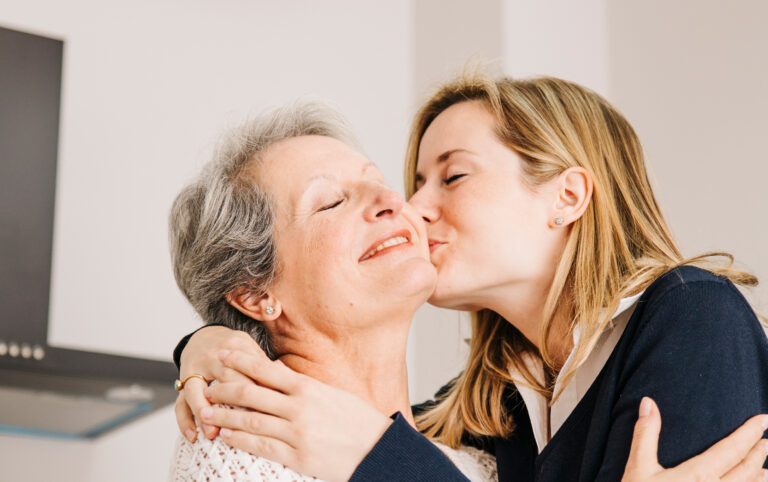As my calendar fills up with “mom” tasks…taking care of my mother with dementia, will I become a “three-no” elderly person?
This article is excerpted from the book “Me and My Mom with Dementia” by Lu Xiaoya. The following is an excerpt.
Should I go full-time, or balance taking care of my mother with dementia? I’m confident that when my mother was diagnosed with dementia, I was also approaching retirement age.
After retirement, should I become a full-time / full-time caregiver for my mother? Or should I balance taking care of my mother with doing what I originally planned to do? I’m struggling inside.
Sometimes this struggle appears in my dreams: Once, I dreamed of traveling with some people, about to embark on a return journey (no doubt, the “return journey” symbolizes my life after retirement). Someone informed me that no one would be arranged to pick me up on the return journey and that I would have to solve it myself after arriving at the station. So I started to panic because I brought my old mother and a lot of luggage, and I didn’t know what to do by myself after arriving at the station…

After completing my duty as a daughter, will I become a boring, uninteresting, and useless “three-no” old lady?
I have long looked forward to retirement because I am ready to start a business in the public welfare field with my friends. I know that I still have the passion and ability to work, and I still crave to unleash my creativity and make this world a better place.
But if I have to take care of my mother full-time, my potential for part of my life will not have a chance to be realized. For this reason, I may have some negative emotions that make it difficult for me to take care of my mother well. As part of the sandwich generation, I am lucky to have my siblings’ support.
Furthermore, 2008 is also the year my daughter takes the college entrance exam, and I also need to provide her with more help and companionship.
Okay, in modern society, shouldn’t there be a new interpretation of “filial piety”? After all, society has undergone many changes, many household chores have been socialized, and there are highly professional nursing homes available. Let me try to find a balance. After all, the caregiver’s physical and mental health is directly related to the quality of care, and if I am depressed, I am afraid that I will not be able to take care of my mother well.
Fortunately, my mother’s illness is still in the early stages, and she can still take care of herself in daily life. There is a snack bar downstairs, and if she doesn’t want to cook, she can take the elevator downstairs to buy food. My mother also has a weekly cleaning person who comes to help her with laundry and room cleaning.
The Best Distance between Parents and Children: “One Bowl of Soup”
With the collective efforts of my younger siblings, I fulfilled a dream within the system after retirement that I was unable to achieve before: together with Du Shuang, a senior volunteer of “Youth Hotline,” we founded a public welfare organization called “Beijing Ge Lu Camp” to assist disadvantaged children.
Starting a business is naturally busy. Fortunately, I learned time management from a very young age and am good at coordinating and optimizing my work and life schedule.
Looking back at my calendars from those years, I found that besides work, “Mom” was definitely a frequent term that appeared, whether it was “visiting Mom,” “going to the park with Mom,” or “picking up Mom” or “dropping off Mom.” During that period, I often brought my mother to live with me at my home. My husband’s job doesn’t require him to go into the office, so when I go out to work, there is always someone at home with my mother, which puts my mind at ease.
The place I live is far from my mother’s house, and it takes an hour and a half by bus one way. I heard that some people sell their parents’ house and rent another one in their own area for their parents to live in. This “one bowl of soup” distance (the distance one can carry a bowl of hot soup without it getting cold) is said to be the best distance between parents and children, as it is easy to care for them while still allowing for each person to have their own living space. I thought the environment in my area was pretty good, so should I rent a two-bedroom house nearby and bring my mother and my seven-year-older father-in-law over and hire caregivers to take care of them? I even went to a real estate agency to inquire, but I thought it was too complicated. As the elderly’s health deteriorates, we would need to hire two caregivers, and coordinating them would give me a headache. My younger siblings also objected because it would distance Mom from them, making it more inconvenient to care for her.
Deciding to retire again, taking care of family and oneself
On my 60th birthday in 2013, I told my young colleagues at the non-profit organization, “Goodbye, I’m retiring for the second time!”
Choosing to retire for the second time was because my mother’s illness had entered the middle stage and really required more of my time and energy. I started a more closely connected life journey with her, which also gave me time to write about the many texts that followed, documenting the last downhill stretch of her life – a gentle and long downhill road, but still filled with unexpected scenery.
Well, never mind if someone will pick me up for my return journey. Let me accompany my mother on her return journey.
Caring for family members with dementia:
- Understand their anxiety: People with dementia face many challenges in a new environment. Where is the bathroom? Which towel is theirs? Which cup can they use for drinking water? What time should they wake up in the morning? What should they do during the day when there’s nothing to do? What should they do if they want to go outside? They may feel anxious about all of these things, but may not be able to express it.
- Respect their dignity: When people with dementia have cognitive impairments, such as picking up the wrong cup, don’t say “you got the wrong one.” Instead, find other ways to deal with the situation, such as putting your own cup somewhere they can’t reach. By accepting their disabilities rather than treating them as mistakes, we can avoid becoming upset or complaining.
Caring for oneself: The physical and mental health of caregivers directly affects the quality of care they provide.
Lorem ipsum dolor sit amet, consectetur adipiscing elit. Ut elit tellus, luctus nec ullamcorper mattis, pulvinar dapibus leo.
